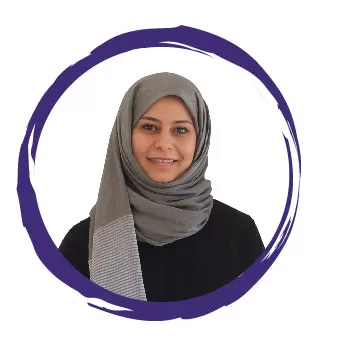Digital Transformation for Sustainable Development
Amal Al-Kabsi - Director, Monitoring and Evaluation unit
As an important first step towards digital transformation, the Project Quality Unit of the Youth Leadership Development Foundation officially launched the "Electronic Project Management, Monitoring and Evaluation System" Control (KUNTRL), which aims to employ information and communications technology to develop institutional performance, improve operational efficiency and increase the effectiveness in the implementation of projects, such as assisting the follow-up team, evaluation and decision-makers in the enterprise in obtaining immediate indicators that reflect the extent of achievement Project-level objectives and enterprise strategy that in turn help make thoughtful decisions that develop work and strengthen accountability, transparency and learning mechanisms.
Since 2020, the Project Quality Unit's efforts have been concentrated on the Advisory Office team responsible for system development (Be) To convert project implementation mechanisms and policies and procedures for follow-up and evaluation in the organization into a digital format and use the necessary techniques to transform traditional operational processes into digital processes, towards a comprehensive transformation to develop all models and mechanisms of traditional work into modern models that help in the use of data and keep up with digital developments To facilitate work and save time and effort.
The system is designed according to the results of the needs assessment sessions with employees in each unit and works according to a road map agreed upon by all leaders working in the units of the institution In a way that supports project management and other units electronically according to the life cycle of the project since its inception, division of the business, identification of tasks and indicators of achievement, and then to the chronic planning of the project according to the detailed financial estimates for the performance of the tasks, and then transition to the phase of monitoring, implementation and measurements level of achievement of each activity to achieve effective coherence between monitoring and implementation and to reach the phase of project closure, delivery of concluding reports and archiving of all project information to enrich the inventory of lessons learned for any future projects.
The year 2021 witnessed a major digital transformation in the organization. After the final launch of the system, the leaders' efforts in the organization focused on motivating the team to start its experience and use the system. This helped to focus on building the capacity of all employees in the institution through intensive practical training on how to work and use the system and linking it to the reality of the actual work. Intensive applications helped to identify and resolve most of the technical and technical problems that appeared in the system quickly to ensure Users have a unique experience that motivates them to further innovate and learn.
The launch of the system was not the only turning point in this year, but the serious adoption and follow-up activation of the system by senior leaders and teams working in the enterprise has greatly helped in the industry of this qualitative digital transformation. The teams working in project management and project quality have proven their ability to keep pace with this shift through great interaction in experimenting and activating the system. In one year we have been able to automate more than a dozen projects that were under implementation, as well as start work and planning New projects across the system are considered to achieve the goal of transforming the culture of digital enterprise work and adopting the principle of continuous development.
The system also helped project teams to effectively plan for project management as well as to deliver the project with the required quality, timely, and cost allocated Assisted the Project Quality Unit to monitor and evaluate the project's completion rate with what is planned immediately and effectively and to report and process deviations, Work is ongoing on the development of the User Information Management System, which will play a prominent role in measuring the organization's strategy indicators and the work of annual reports. The system assists decision-makers in the organization to monitor the achievement of the indicators and identify the required resources at each stage and identify the tasks required for them and the persons assigned to each activity, which has played a significant role in the management of human resources by recording the number of hours worked, knowing the responsibilities and tasks assigned to them, and the extent to which the accomplishment is achieved and easy to assign and transfer the task between more than one employee with full flexibility without losing the mission information.
The KUNTROL platform is created to improve the quality of the outputs of enterprise projects, promote accountability, transparency, and learning, and provide a successful ICT governance model to other local civil society organizations as a role model. s Development plans to drive development through smart digital transformation and use this technology to help achieve sustainable development goals.







